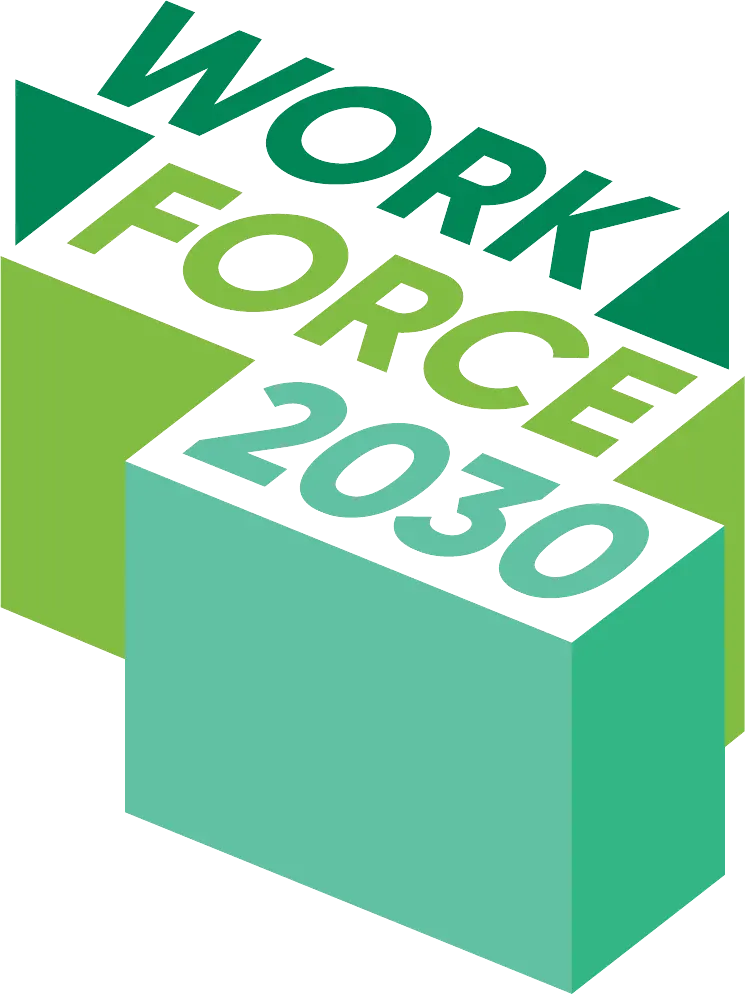Workforce 2030 project receives $1.2M from The Future Skills Centre
Workforce 2030 recently received $1,210,307 from The Future Skills Centre – Shock-proofing the Future of Work open call – for “Rapid Upskilling for Green Building ,” a new two-year project that builds on the coalition’s mission to bring together employers, unions, and education providers to help grow and prepare Ontario’s building sector workforce for a low-carbon future.
The project will be rolled out by coalition partners including Canada Green Building Council (CAGBC), Toronto Community Benefits Network , Mohawk College, Labour Education Centre , Building Up , The Daniels Corporation, and BOMA Toronto .
By leveraging Workforce 2030’s network of community organizations, educators and industry experts, Rapid Upskilling for Green Building will contribute to low-carbon skills innovation. The initiative will focus on transitioning COVID-impacted workers into green building work such as energy retrofits and new low-carbon construction by evaluating, designing, and expanding pre-apprenticeship training with low-carbon content, followed by piloting, and evaluating innovative upskilling delivery models. These activities will help expand pathways to resilient employment with the support of coalition industry and union partners and will generate workforce development learnings.
Future Skills Centre-funded innovation projects identify emerging and in-demand skills, and test new methods of training delivery. The insights from these projects will help inform governments, the private sector, labour, educational training institutions, non-for-profits, and academics on the broader adoption of novel approaches to training and skills development.
Via the Rapid Upskilling for Green Building project, coalition partners will engage more than 500 workers with a focus on GTHA communities most impacted by the pandemic, prioritizing groups underrepresented in the building sector, especially women and racialized youth.
Pedro Barata, Executive Director of the Future Skills Centre, says “rapid retraining and upskilling will enable workers negatively impacted by the pandemic to gain new, forward-looking skills. “This training that enables people to make the transition to in-demand jobs in the green building sector not only helps a hard-hit segment of the workforce but also supports efforts to reduce our carbon footprint and protect the environment. This is just one of the exciting shock-proofing projects that FSC is investing in to build a future playbook for shared prosperity, and help Canadian workers and businesses seize opportunities in our future economy.”
Here is what the project partners have to say about Rapid Upskilling for Green Building:
“Meaningful workforce development happens in sectors that need people. Therefore, the green building industry is the perfect avenue to connect people that need work, with the work that most needs to get done. This project will allow us to collectively make that connection happen.” — Marc Soberano, Executive Director, Building Up.
“The Future Skills Centre funding recognizes the building sector’s power to lift Canada’s economy while creating future-proof jobs. Our Rapid Upskilling project offers a way for diverse, COVID-impacted workers to be employed in green building as Canada transitions to a low-carbon economy that prioritizes climate and resiliency.” — Akua Schatz, VP Market Engagement and Advocacy, Canada Green Building Council
“If there is anything the events of 2020 have shown us, it is the importance for local communities to share in the way their neighborhoods are developed. The green building sector allows communities to share not only in good environmental design but in the actual physical building, bringing multiple benefits that will have powerful long-term impacts.” — Rosemarie Powell, Executive Director, Toronto Community Benefits Network.
“The Rapid Upskilling for Green Building program is meeting a need that the Labour Education Centre identified a few years ago; there are not enough trained operators to maximize greenhouse gas savings from building heating and cooling systems, and about 50% of carbon pollution comes from the built environment. To get to net zero we have to operate our institutional, commercial, industrial and multi-unit residential building more efficiently, and to do that with intentional training programs. With funding from the Future Skills Centre through Workforce 2030, LEC is doing just that.” — Steve Shallhorn, Executive Director, Labour Education Centre
“Any meaningful and lasting recovery should involve a low-carbon recovery agenda, investing in worker retraining, upskilling and re-employment for energy-efficient building retrofits and new low-carbon construction. There is a huge labour gap in Ontario’s building sector and now is the right time to build a low-carbon Ontario for tomorrow.” — Dr. Tony Cupido, Sustainability Research Chair at Mohawk College and Board Member of the Canada Green Building Council.
The Rapid Upskilling for Green Building project is funded by the Government of Canada’s Future Skills Centre.



